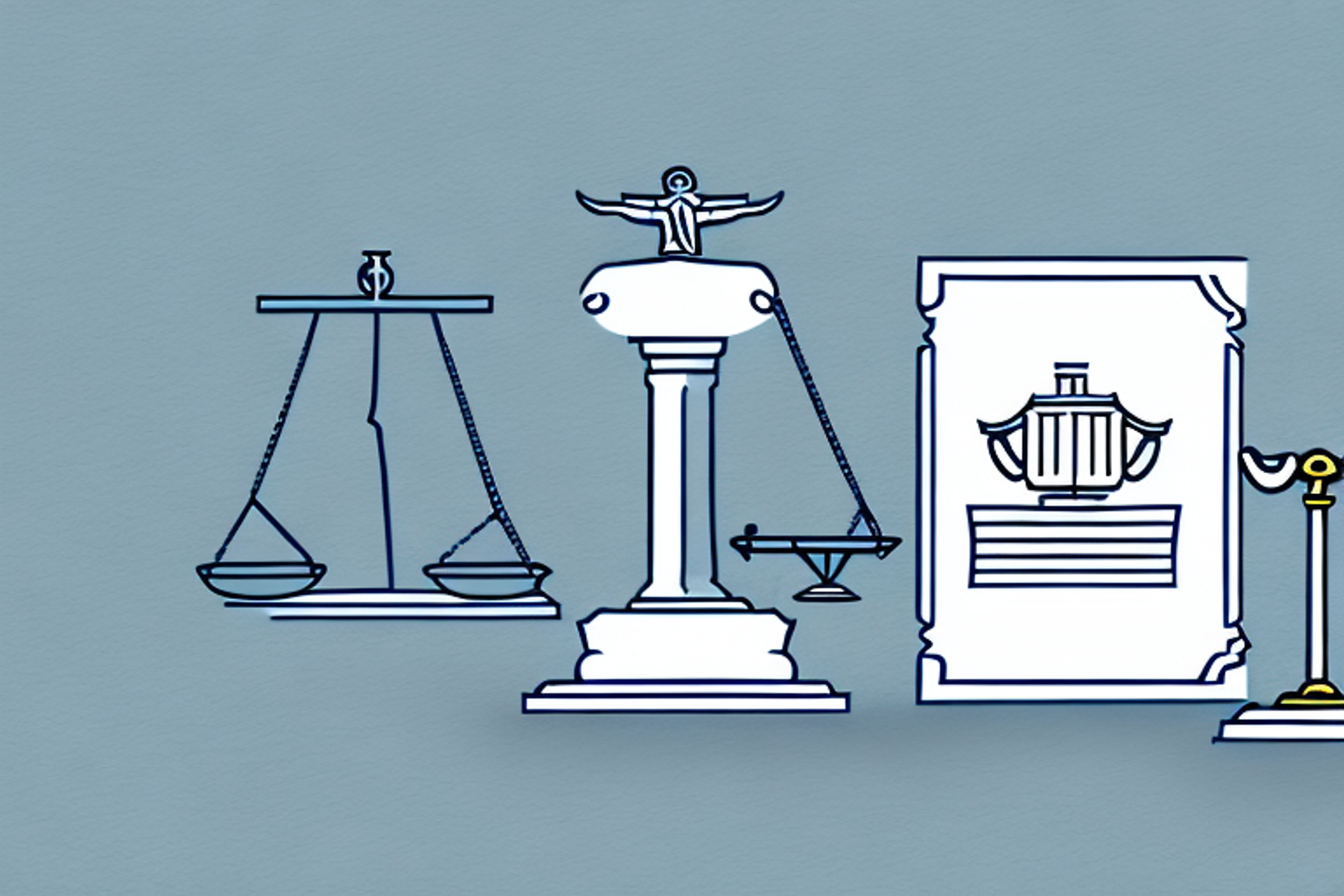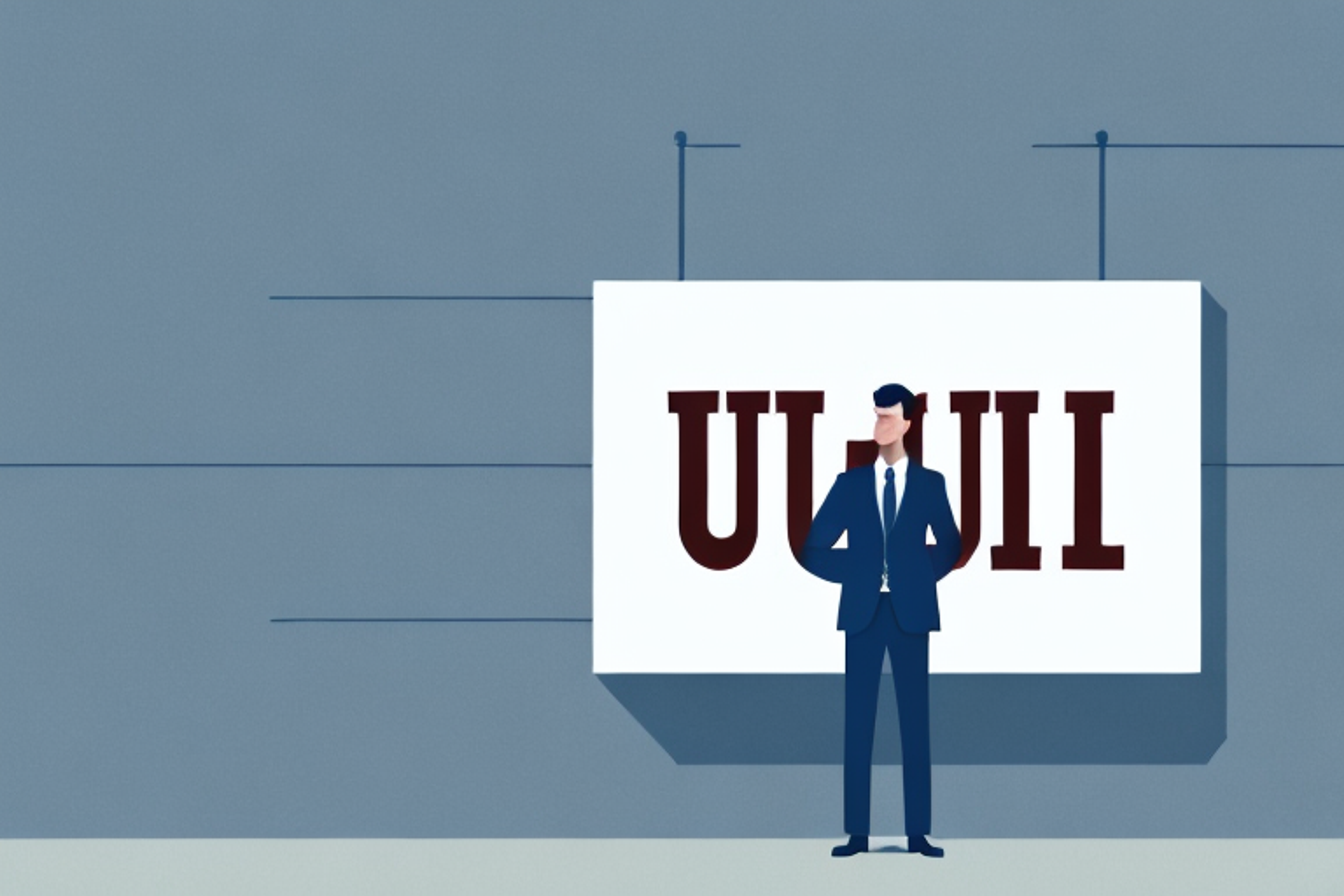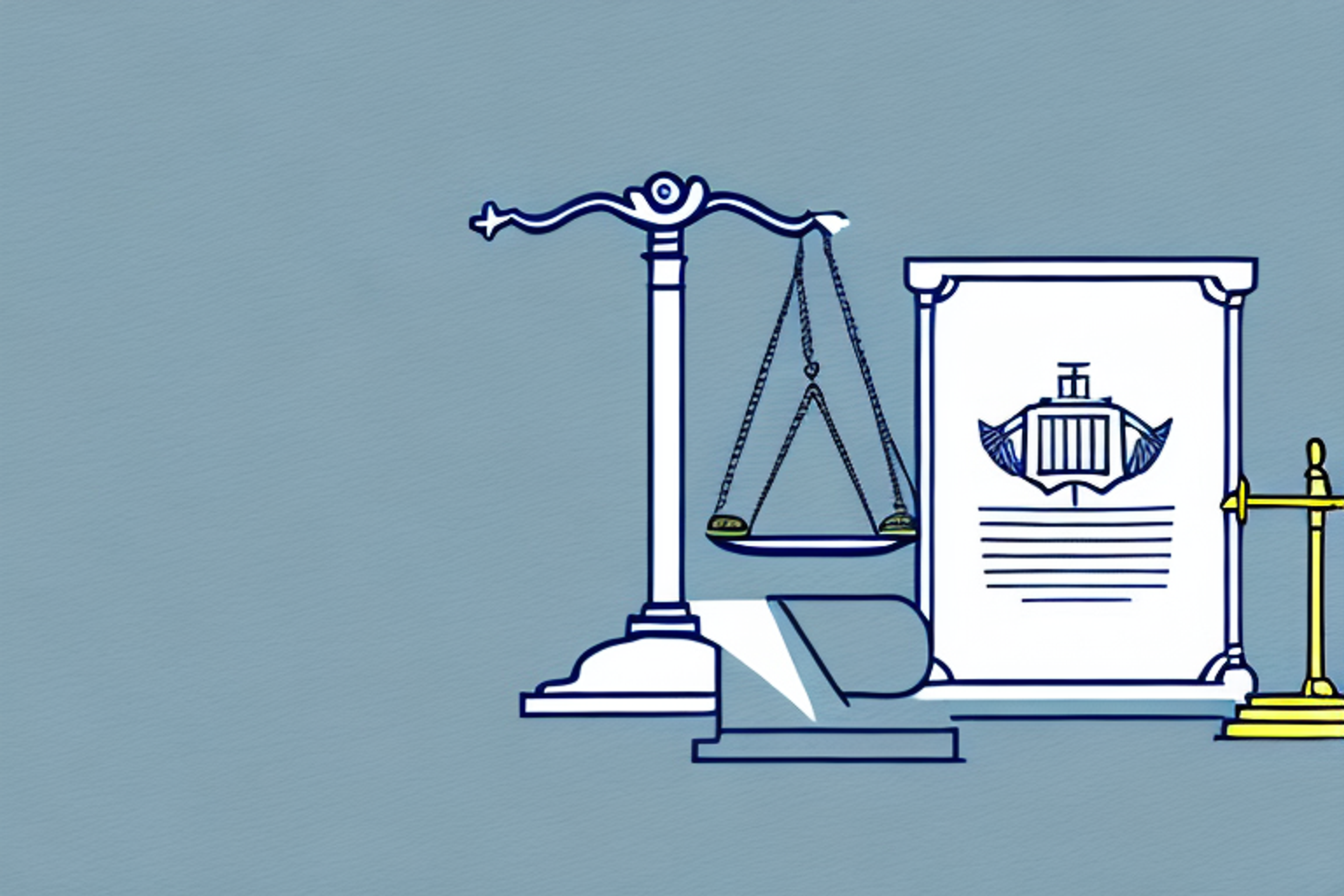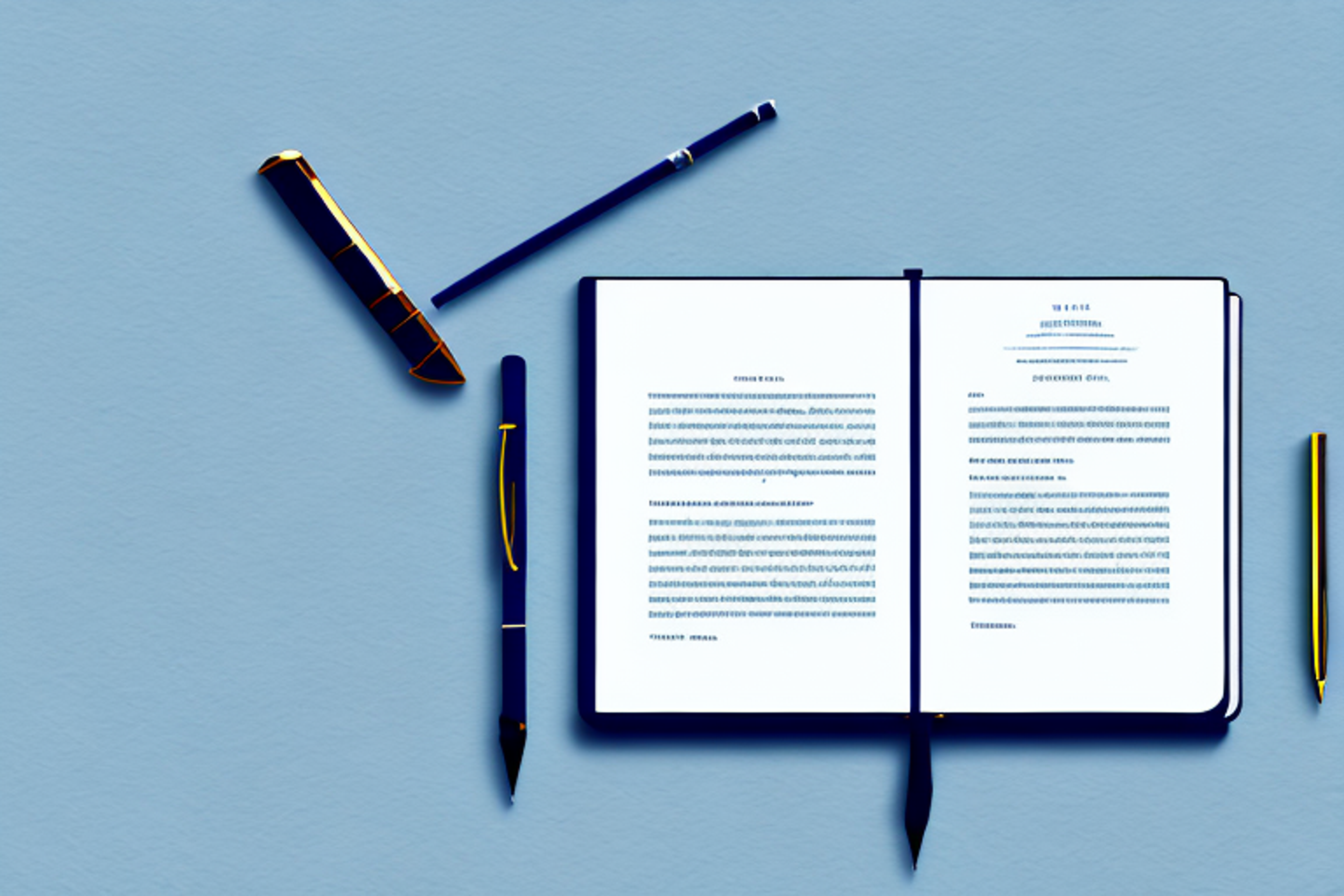How to Write a Compelling Personal Statement for University of Notre Dame Law School
Learn how to craft a powerful personal statement that will impress the admissions committee at University of Notre Dame Law School.
Posted March 6, 2025

Table of Contents
Applying to law school can be a daunting task. Especially when it comes to submitting your personal statement, which plays a crucial role in the admissions process. This article aims to provide you with all the necessary information, tips, and tricks to write a compelling personal statement for the University of Notre Dame Law School.
Understanding the Importance of a Personal Statement for Law School Admissions
Before we dive into the specifics of crafting a personal statement, it's essential to understand why it's such an integral part of the law school admissions process. Your personal statement is your chance to differentiate yourself from the rest of the applicant pool. It's an opportunity to showcase your personality, skills, experiences, and goals in a way that your grades and test scores alone cannot.
Furthermore, a well-written personal statement can also demonstrate your commitment to the field of law and your potential as a future lawyer. Admissions committees are looking for candidates who are passionate about the law and have a clear understanding of what it takes to succeed in this challenging field. Your personal statement can help convey this message and convince the committee that you are a strong candidate for their program.
Finally, a personal statement can also provide context for any weaknesses in your application. For example, if you had a low GPA or a gap in your academic record, your personal statement can explain the circumstances and provide insight into how you overcame these challenges. This can help the admissions committee see you as a well-rounded candidate, rather than just a set of numbers on a page.
Researching the University of Notre Dame Law School and Its Admissions Process
It goes without saying that you need to research the school you're applying to. Notre Dame Law School is well-known for being selective, and the admissions committee looks for candidates who are not only academically strong but also well-rounded and committed to the legal profession. Take some time to visit the school's website and familiarize yourself with their values, mission, and academic programs. Moreover, study their admissions requirements to ensure you meet all the criteria before applying.
Additionally, it may be helpful to reach out to current students or alumni of Notre Dame Law School to gain insight into their experiences and the culture of the school. Attending information sessions or virtual events hosted by the school can also provide valuable information and allow you to connect with admissions representatives. Remember, the more you know about the school and its admissions process, the better prepared you will be to submit a strong application.
Analyzing the Prompt: What Admissions Committees Look for in a Personal Statement
Once you've understood the school's admissions process, it's time to delve into the prompt for your personal statement. The prompt is your guide to what the admissions committee expects from your submission. Notre Dame Law School's prompt typically requires you to reflect on your personal and academic experiences, to explain why you want to pursue a law degree, and to depict how that degree will help you achieve your career goals. Your answer should be well-articulated and specific.
It's important to note that while the prompt provides a framework for your personal statement, it's also an opportunity for you to showcase your unique qualities and experiences. Admissions committees are looking for applicants who stand out and bring something new to the table. Therefore, it's crucial to not only answer the prompt but also to do so in a way that highlights your individuality. This can be achieved by incorporating personal anecdotes, specific examples, and a clear sense of your values and goals. Remember, your personal statement is your chance to make a lasting impression on the admissions committee, so make sure to put your best foot forward.
Brainstorming and Outlining Your Personal Statement: Highlighting Your Unique Qualities and Experiences
Before writing your personal statement, you should brainstorm the message you want to convey and identify the significant experiences that showcase your suitability for the legal profession. Create an outline of your ideas and organize them into coherent and logical paragraphs. Make sure that your narrative flows well and is easy to follow.
Crafting an Attention-Grabbing Introduction That Sets the Tone for Your Personal Statement
The introduction of your personal statement is the most critical part since it's where you capture the reader's attention. Consider starting with a personal anecdote, a quote, or a statistic that reinforces your message. Be creative while also making sure that your introduction aligns with the overall tone of your essay.
It's important to remember that your introduction should also provide a clear indication of what your personal statement is about. This means that you should avoid being too vague or general in your opening sentences. Instead, try to provide a specific and concise overview of the main themes or ideas that you will be exploring in your essay. This will help to set the tone for the rest of your personal statement and ensure that your reader knows exactly what to expect.
Creating a Compelling Narrative That Showcases Your Passion for Law and Your Career Goals
Once you've set the tone for your personal statement in the introduction, it's time to expand on your ideas and demonstrate why you're passionate about the legal profession. Use specific examples that highlight your skills and experiences, and explain how your goals align with Notre Dame Law School's values. Remember that your narrative should be focused on the future, illustrating your future aspirations and why a law degree is the right path to achieve them.
Additionally, it's important to showcase your understanding of the legal field and its impact on society. Discuss current legal issues that interest you and how you hope to contribute to the field. This can include topics such as social justice, environmental law, or intellectual property rights. By demonstrating your knowledge and passion for these issues, you can show admissions committees that you are committed to making a positive impact through your legal career.
Highlighting Your Relevant Experiences, Achievements, and Skills in a Logical Manner
Your personal statement should not only showcase your passion for law but also highlight your relevant experience, achievements, and skills. Try to connect these experiences and achievements to your future goals and illustrate how they make you stand out from other candidates. It's essential to present your experiences in a logical order and avoid repeating yourself.
One effective way to showcase your relevant experiences is to use specific examples. For instance, if you have worked as a legal intern, you can describe the tasks you performed and the skills you gained. You can also mention any notable achievements, such as winning a moot court competition or publishing a legal article.
Another important aspect to consider is the tone of your personal statement. While it's important to highlight your achievements and skills, you should avoid sounding arrogant or boastful. Instead, focus on presenting yourself as a confident and capable candidate who is passionate about pursuing a career in law.
Avoiding Common Pitfalls and Mistakes in Writing a Personal Statement
It's easy to fall into common pitfalls when writing your personal statement. Avoid cliches and generic statements that don't add value to your narrative. Similarly, avoid being too personal or including irrelevant information. Keep your language formal but not overly complex, and avoid making grammatical or spelling errors as much as possible.
Another common mistake to avoid is copying someone else's personal statement or using a template. Your personal statement should be unique and reflect your own experiences and goals. It's important to take the time to brainstorm and write your own original content. Additionally, make sure to tailor your personal statement to the specific program or school you are applying to. Research the program and highlight how your experiences and goals align with their mission and values.
Editing and Proofreading Your Personal Statement to Perfection
Once you've written your first draft, it's important to give your essay a second look before submitting it. Look for mistakes in grammar, spelling, or formatting. Try to read your essay out loud or ask someone else to read it to you to catch any awkward phrasing or lack of coherence.
Another important aspect of editing and proofreading your personal statement is to ensure that it effectively communicates your unique qualities and experiences. Make sure that your essay is not only free of errors, but also showcases your strengths and accomplishments. Consider asking a trusted friend or mentor to review your essay and provide feedback on how well it conveys your personal brand.
Seeking Feedback from Professors, Peers, or Professional Editors
Don't hesitate to ask for feedback from your professors, peers, or even professional editors. Their input can make a significant difference in the quality of your personal statement. However, don't rely solely on their revisions or corrections, as your voice and ideas should remain authentic.
When seeking feedback, it's important to be open to constructive criticism and to take the time to carefully consider the suggestions given. It's also a good idea to seek feedback from multiple sources to get a well-rounded perspective on your personal statement. Remember, the goal is to improve your writing and make your personal statement the best it can be.
Final Tips for Crafting an Outstanding Personal Statement That Stands Out in the Admissions Process
In conclusion, keep in mind that your personal statement is your chance to make a lasting impression on the admissions committee. Dedicate the necessary time and effort to craft a personal statement that highlights your strengths, showcases your passion for law, and demonstrates why Notre Dame Law School is the right choice for you. Good luck!
One final tip to consider when crafting your personal statement is to have someone else review it. This could be a friend, family member, or even a professional editor. Having a fresh set of eyes can help catch any errors or inconsistencies in your writing, as well as provide valuable feedback on the overall effectiveness of your statement. Don't be afraid to ask for help and take advantage of the resources available to you.











